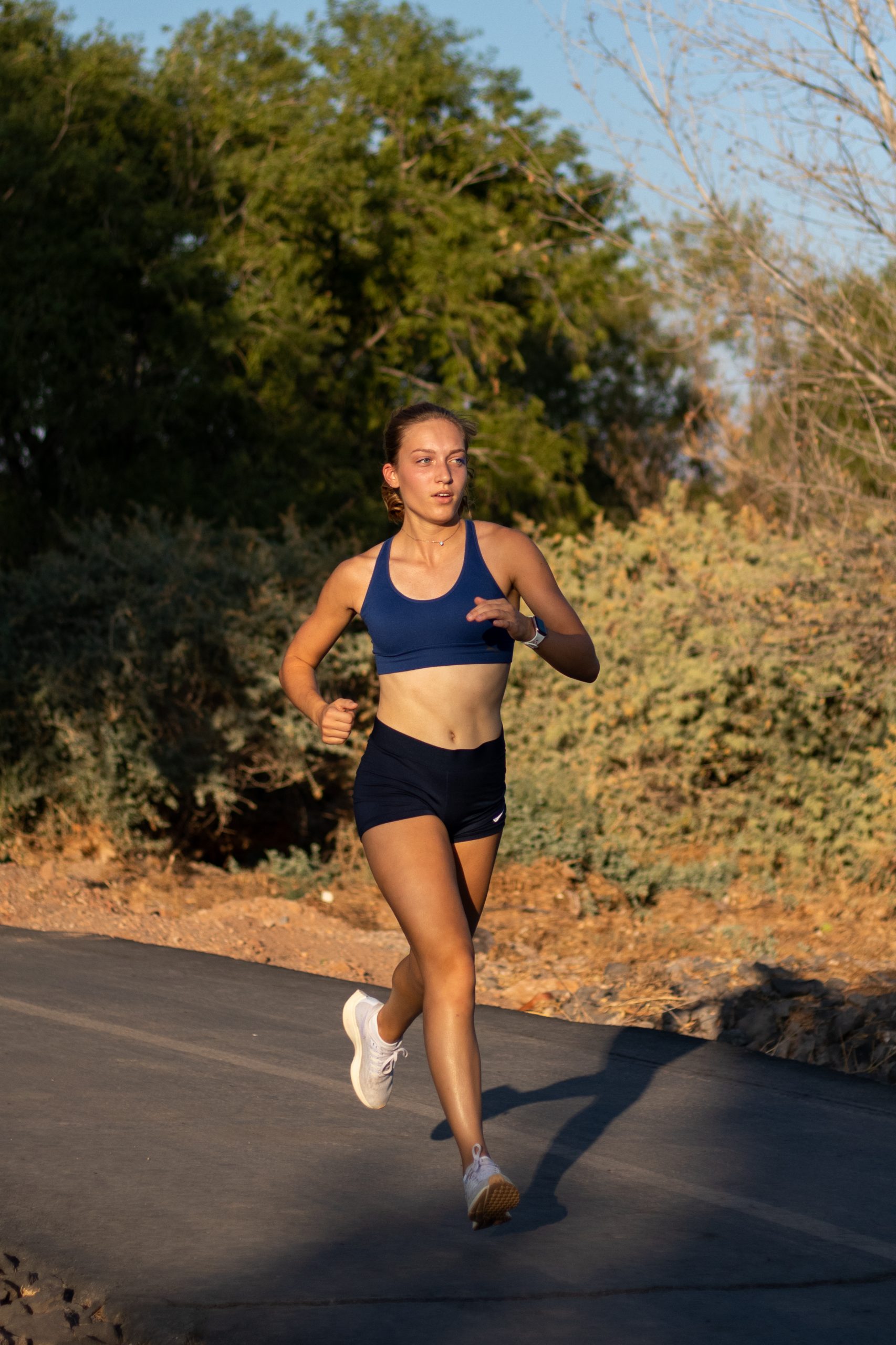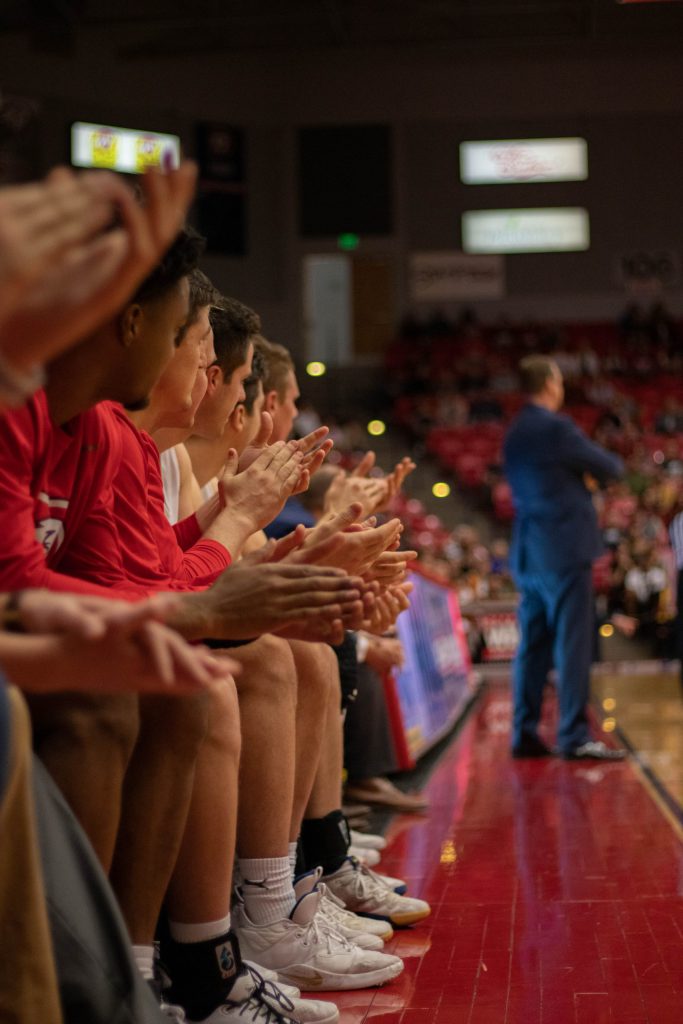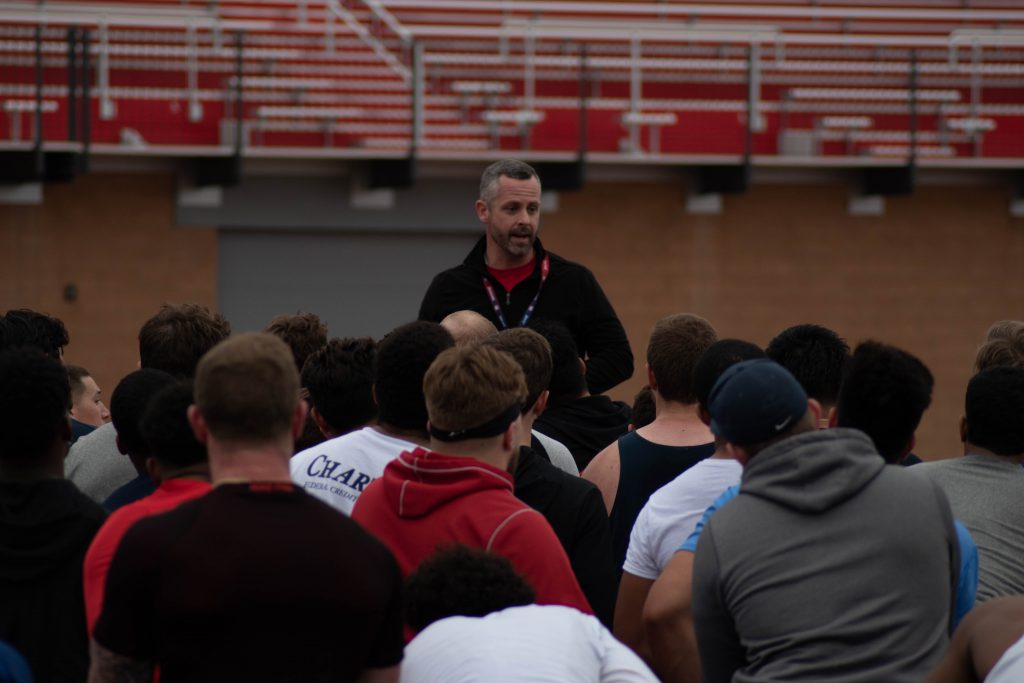Cross-country is a team sport, but the work done outside of competition is independent and extensive, something only amplified by restrictions COVID-19 has brought.
Due to the limit of just eight hours per week of practice time set by the NCAA, much of Dixie State University’s cross-country team’s work is done on its own time, and they have to be incredibly self-motivated.
“I kind of have to face [the challenges of cross-country] and be able to face those things because other people are relying on me,” said Tyson McKeon, a senior mechanical engineering major from Stansbury. “It’s not just about me in the sport. As individual as this sport is, we’re still a team and we do still compete in teams of seven.”
When the cross-country teams found out their seasons had gotten postponed, they didn’t stop running. Although they weren’t allowed to spend as much time training as a team, team members still worked just as hard independently.
“Running is a sport that you don’t ever really take any breaks,” said Cassidy Elmont, a sophomore population health major from American Fork. “[Running is] a year-round thing. Maybe you’ll have a week off, but for the most part you’re always running.”
Elmont said she was rehabbing an injury in spring 2020 when her freshman track and field season was canceled, which lead to more self-motivated training. She said she found herself not only trying to rehab an injury, but also dealing with frequent hospital visits for physical therapy during a pandemic.
“Every day I went, there was a new question they’d ask me,” Elmont said. “One day it was ‘okay we have to take your temperature.’ Then the next day it was ‘wear a mask and take your temperature,’ then ‘wear a mask, take your temperature, have you had any cough or sneezing or anything?’ It was like every time there was a new question, until it got to the point that I was like ‘no, I’m fine, just let me go to physical therapy.'”
Elmont said she did find a positive in her injury happening amid the coronavirus, though.
“It did help lessen the pressure coming back from an injury and immediately needing to be back to doing well again and supporting the team,” Elmont said.
Despite Elmont’s positive outlook, though, coronavirus could potentially cause the cross-country and track and field seasons conflict. With a handful of athletes competing for both track and field and cross-country, the postponement of the cross-country season results in the proximity of these two seasons to be heightened, ultimately affecting how the teams will prepare for the seasons.
Elmont said she worries moving the season will throw off the “loop” the two seasons create when alternating one with another.
“We practically will wait a whole year to compete cross-[country],” Elmont said.
Justin Decker, cross-country and track and field head coach, said he anticipates the cross-country season will occur in January and February, followed closely by track and field season in the spring like originally scheduled, though no dates are guaranteed yet.
“Safety is always the number one priority,” Decker said. “So if the medical professionals, doctors and everybody don’t think it’s the safest thing to be out competing, then you have to agree with that and do what you can to take care of the athletes, coaches and everybody involved.”
Despite all the unknowns of how its future seasons will work, DSU’s cross-country team is optimistic that it will be successful in its first season in the Western Athletic Conference.
After coming from a strong Rocky Mountain Athletic Conference that included lots of strong cross-country teams, Elmont said she is particularly interested in seeing how her team does in the WAC.
“The RMAC, as far as cross country goes, is a powerhouse,” Elmont said. “So, I was wondering how well we could do against the WAC. I don’t feel like we’d go to the WAC and be last. Of course we’re not going to be number one, we’re just moving to DI, but I feel like we could be in a decent spot.”




